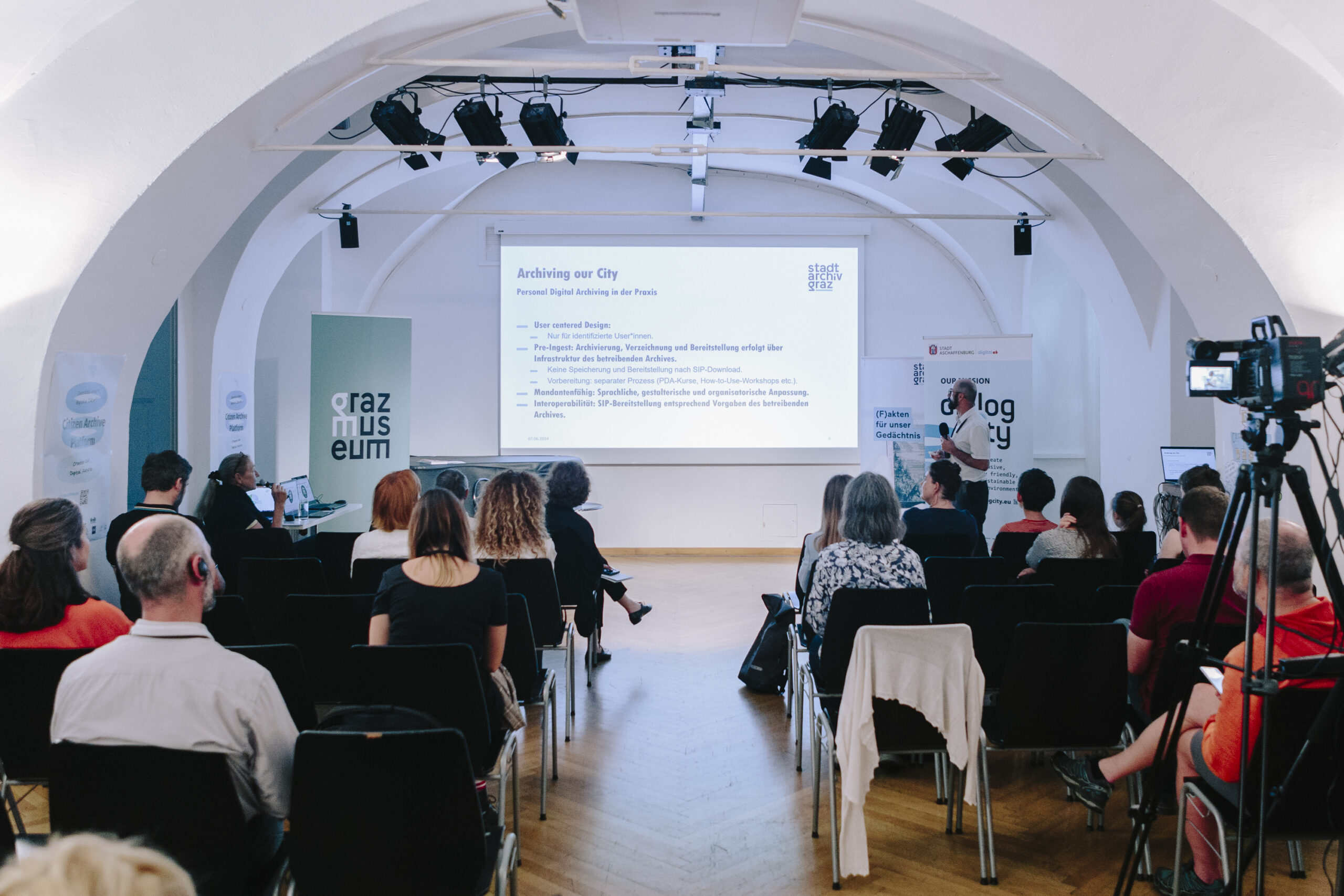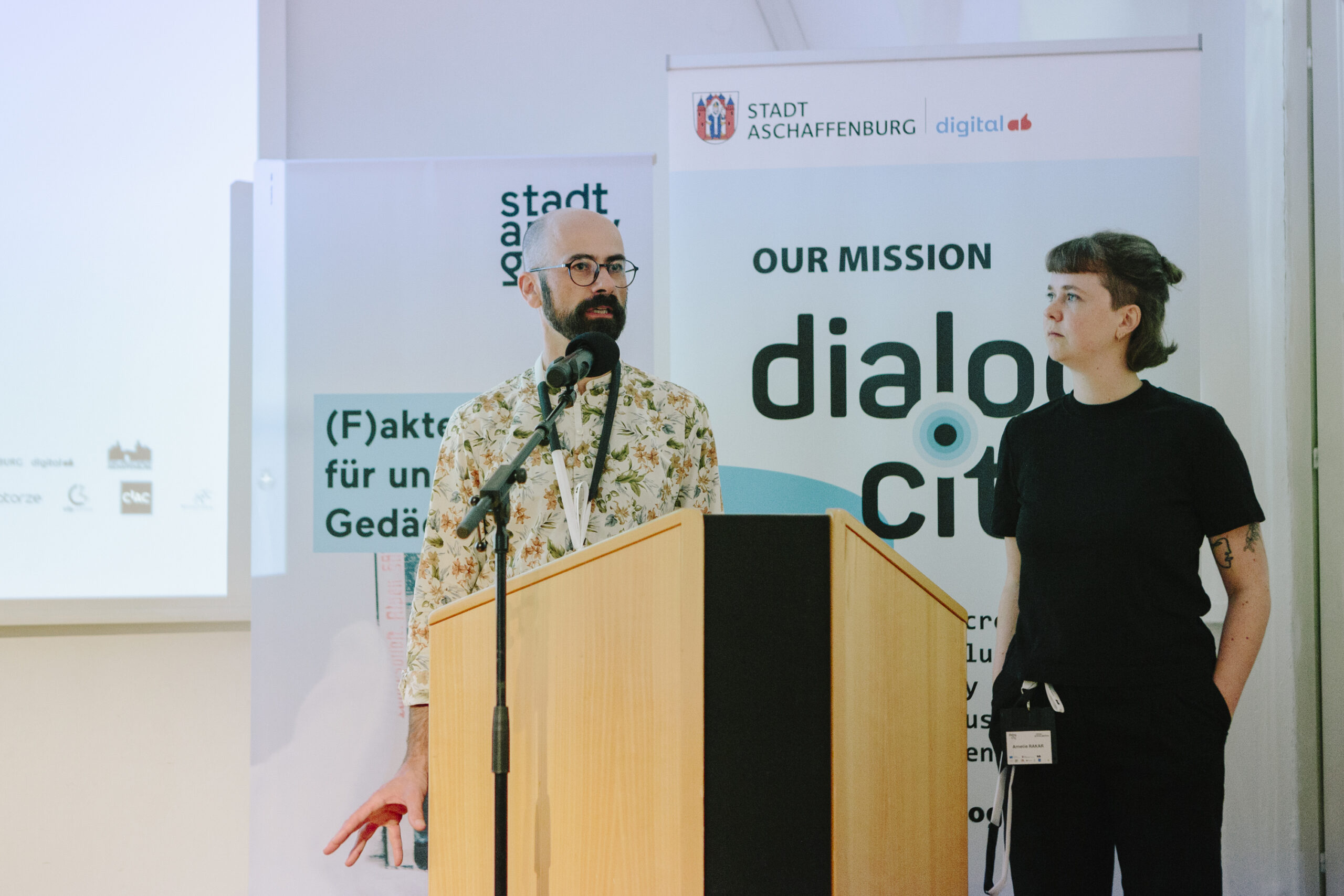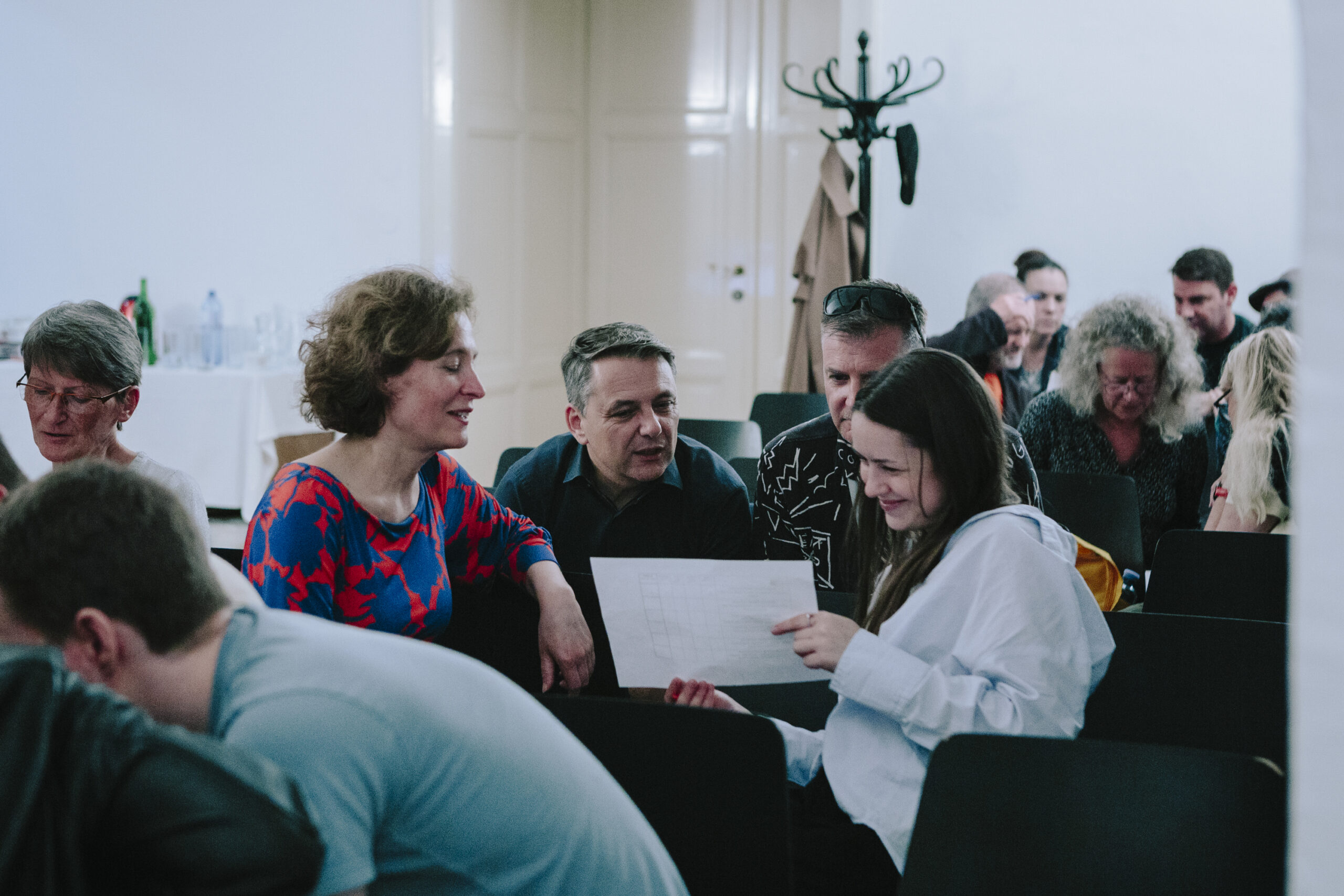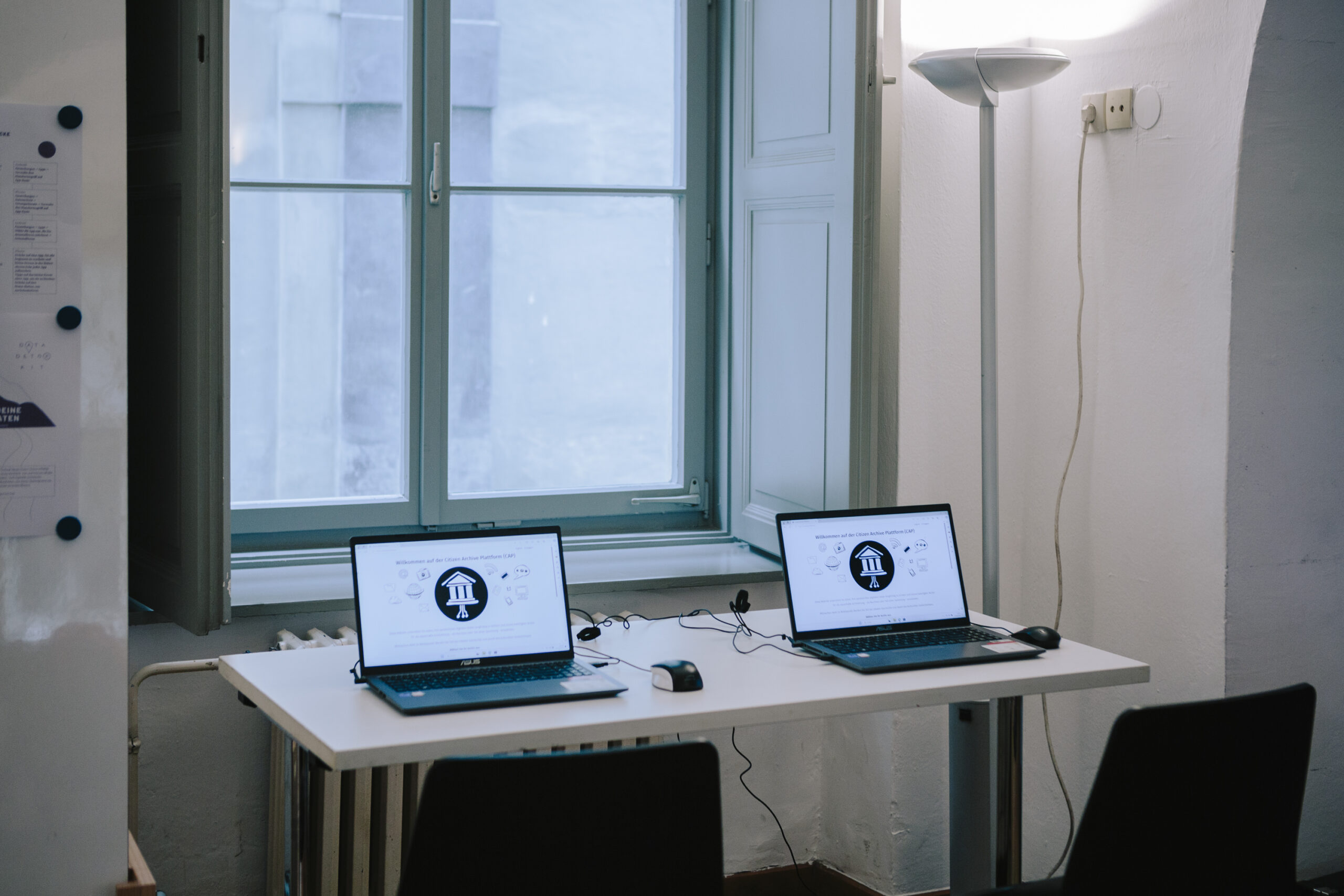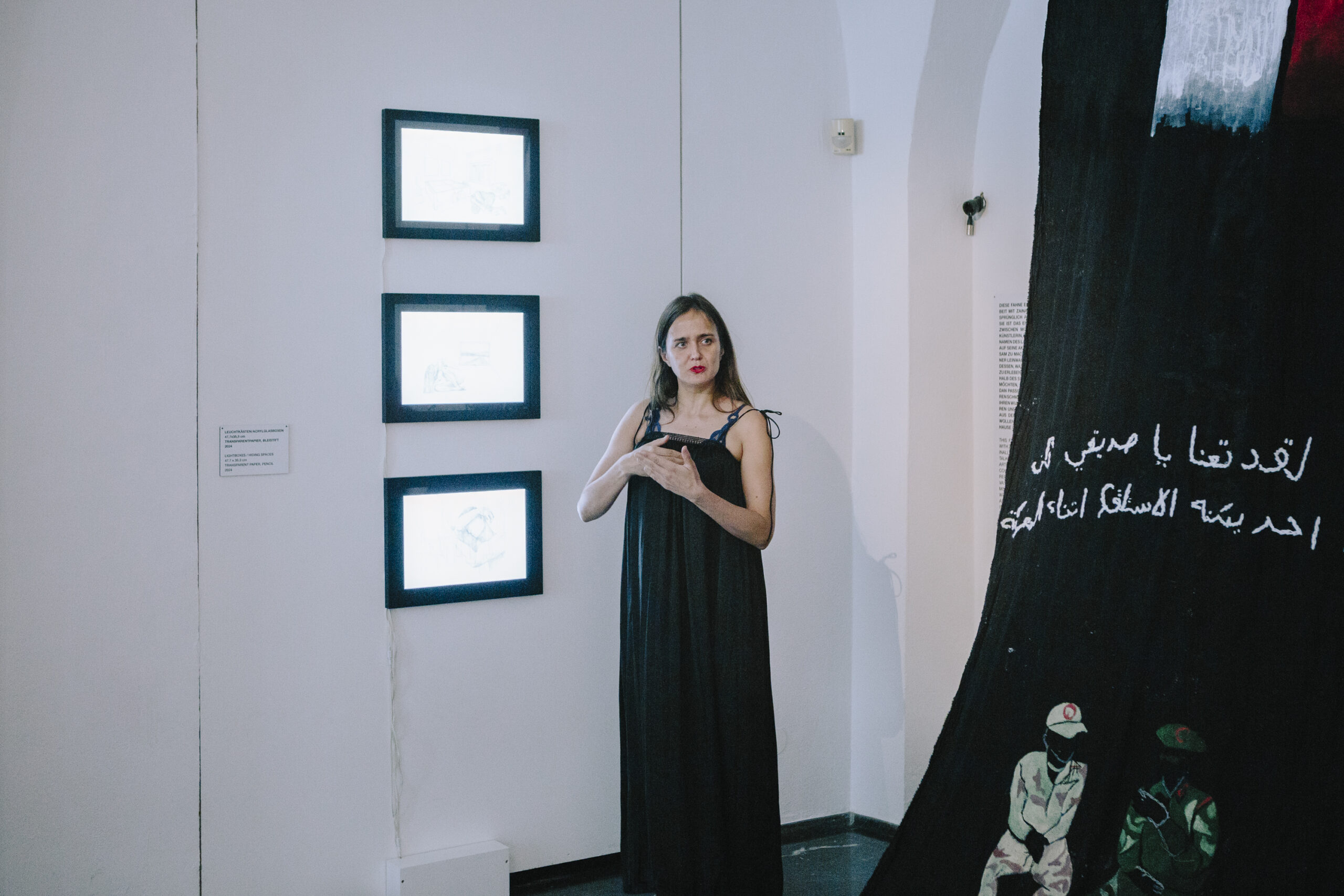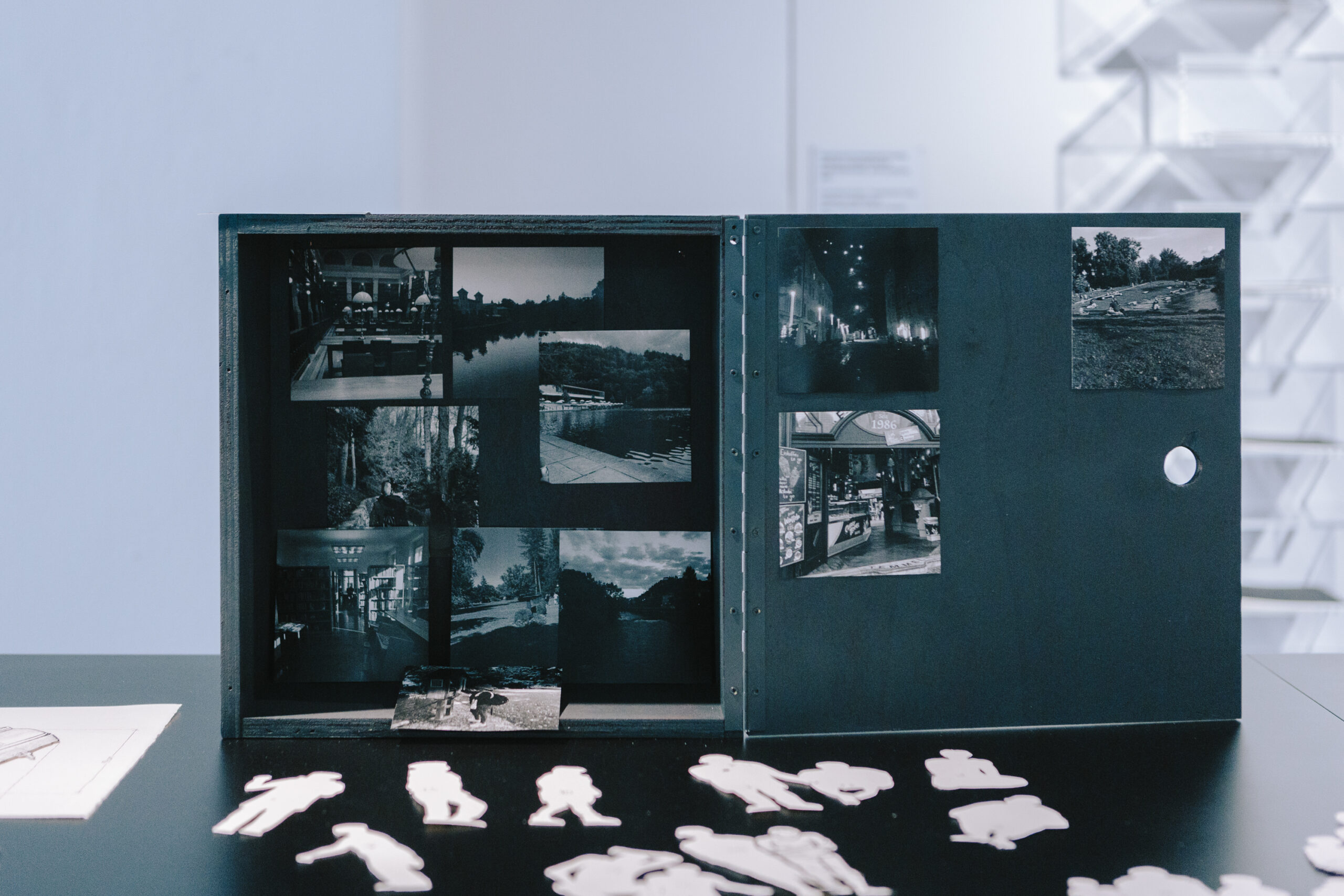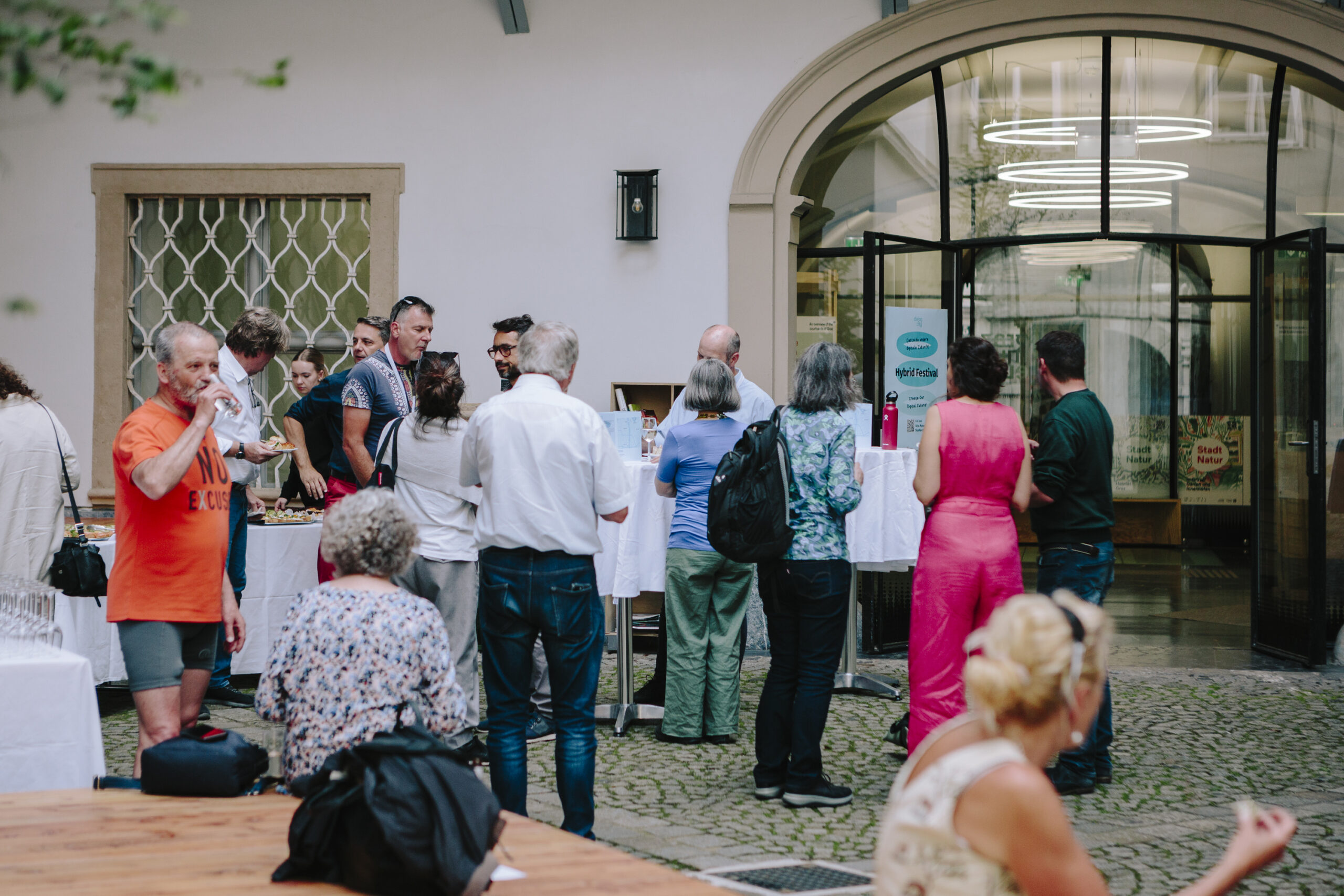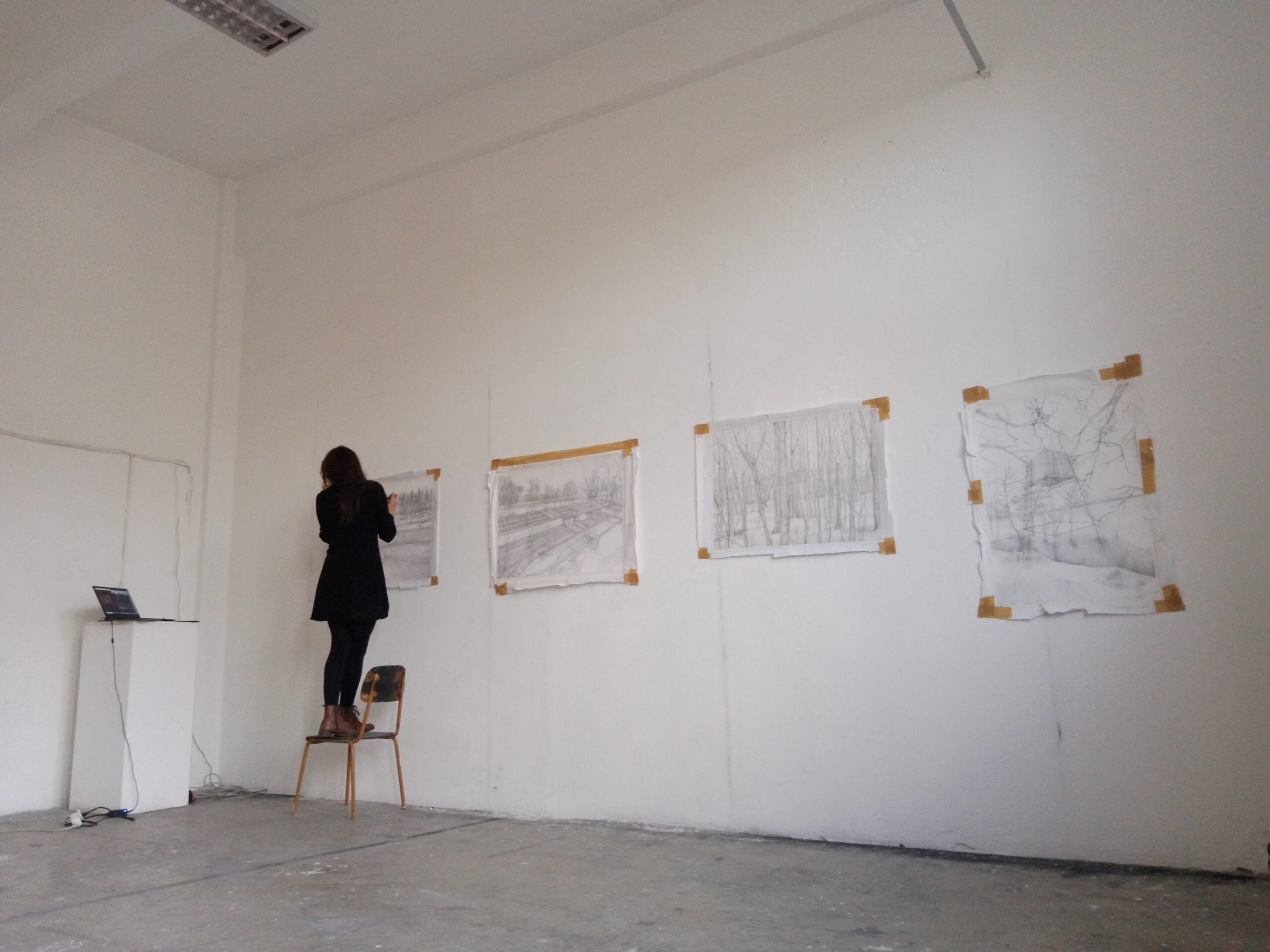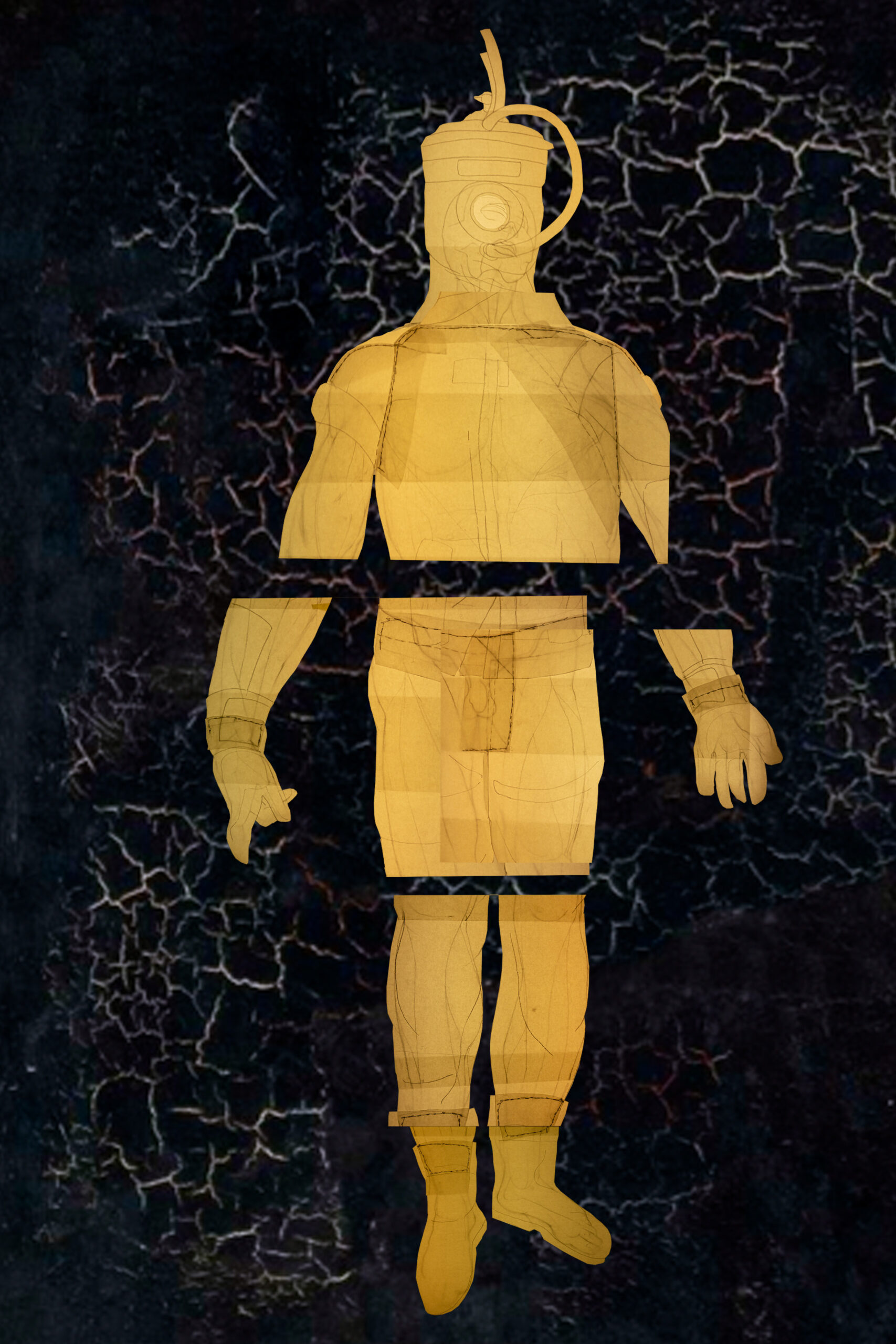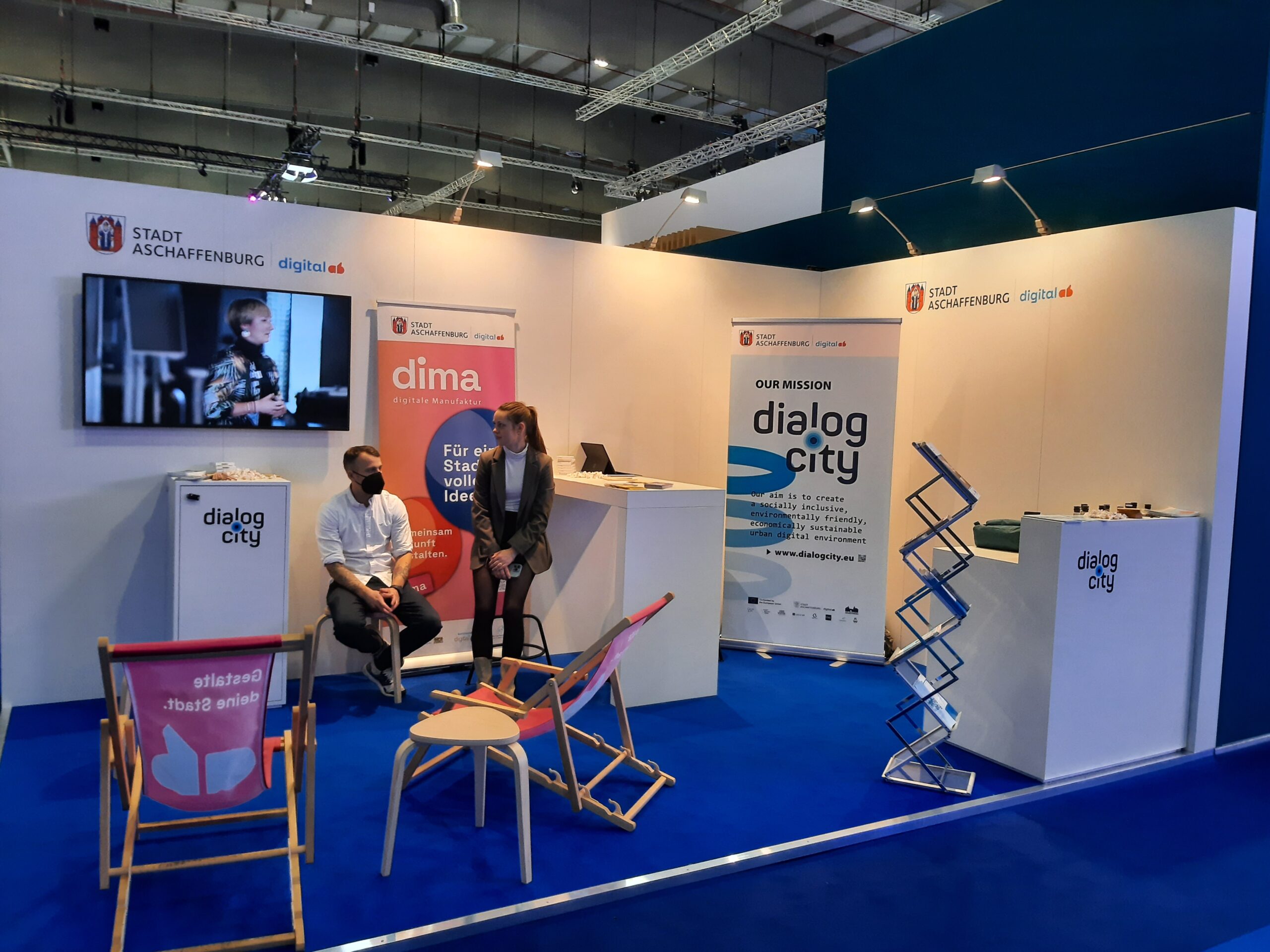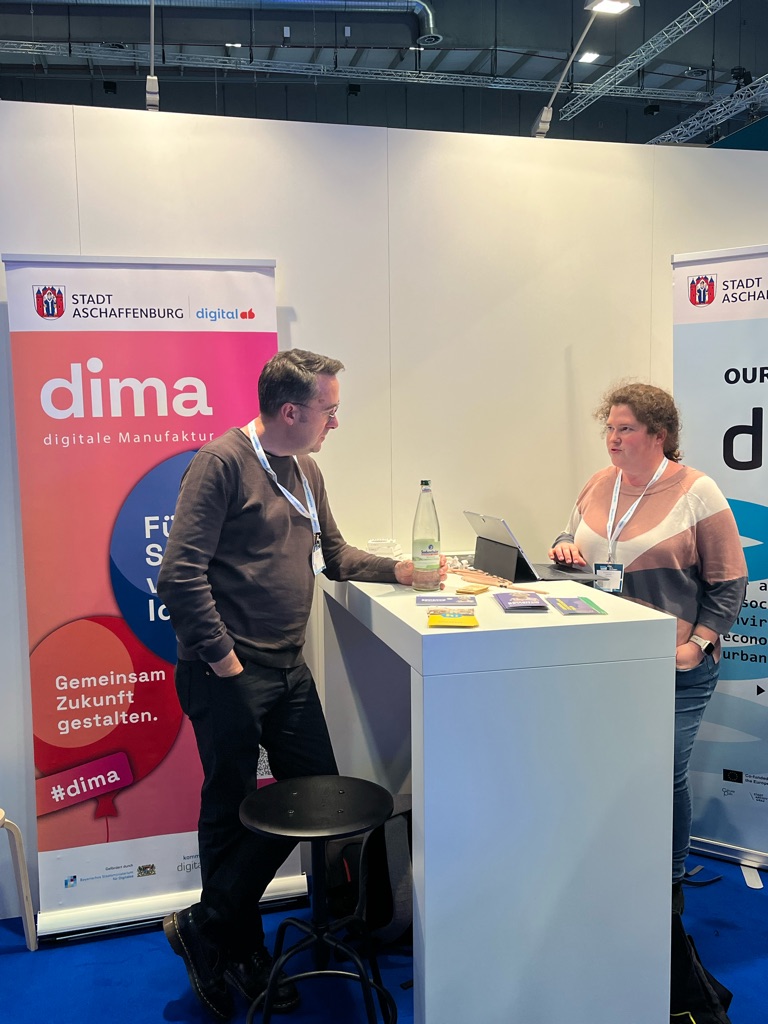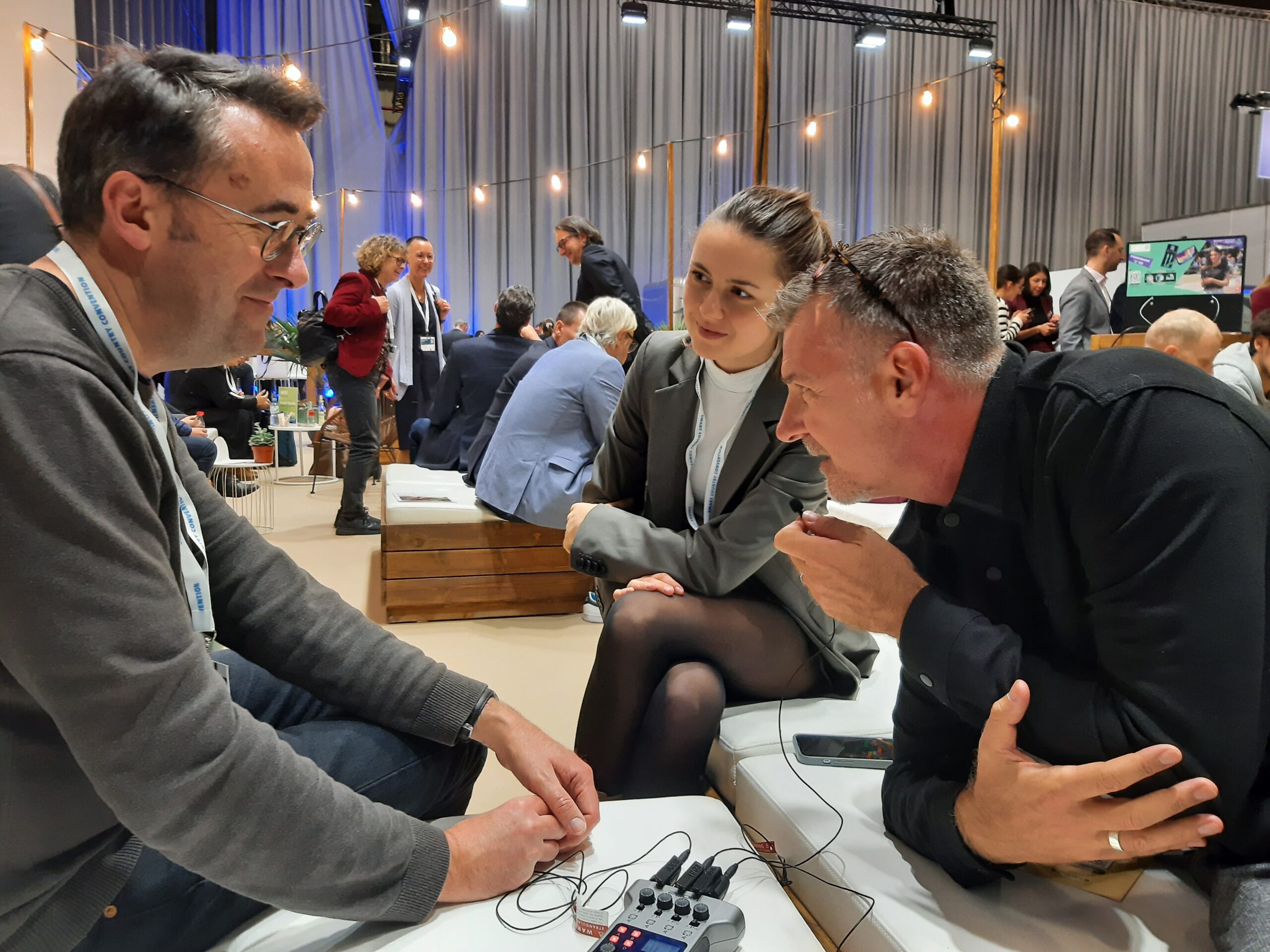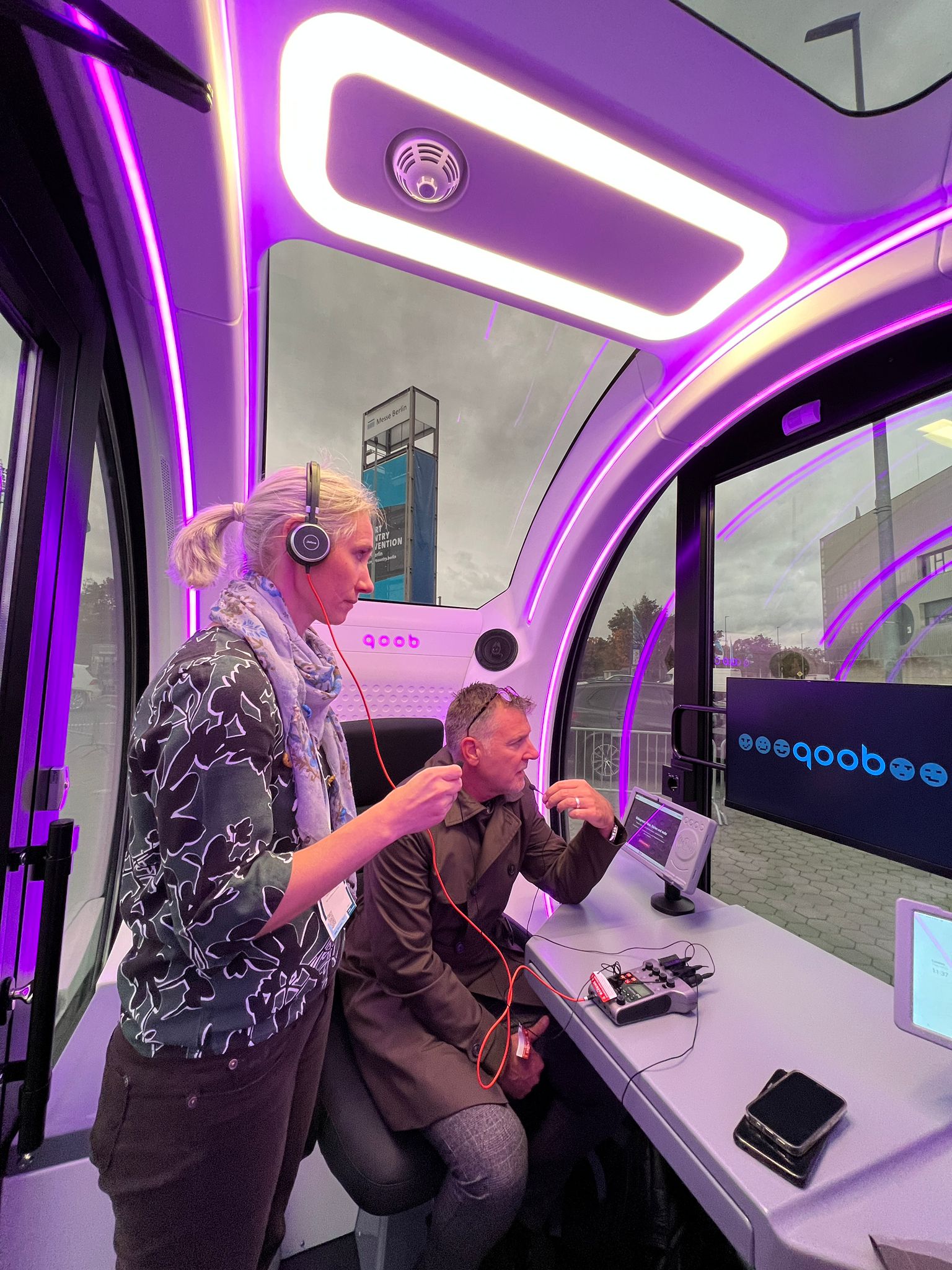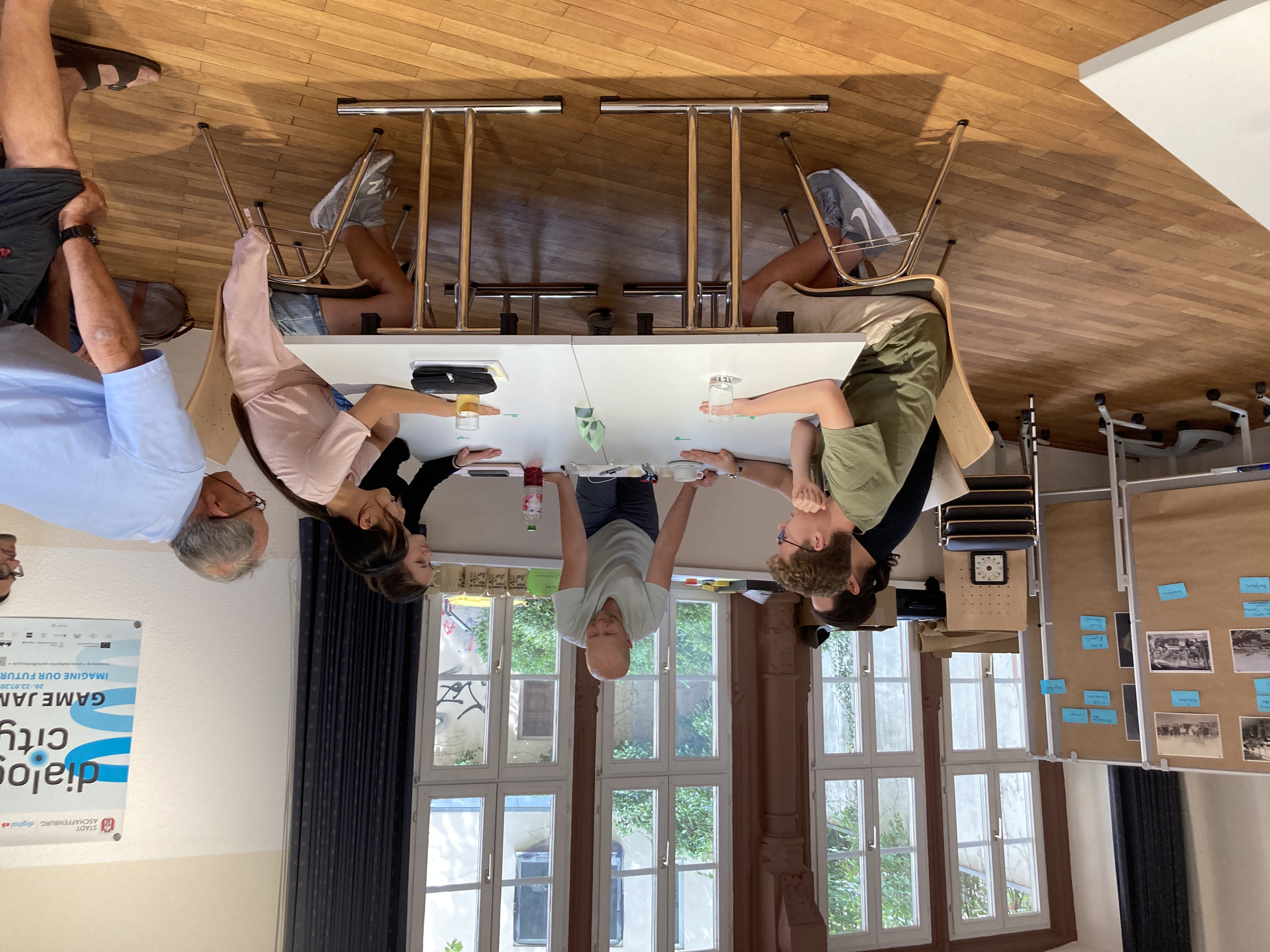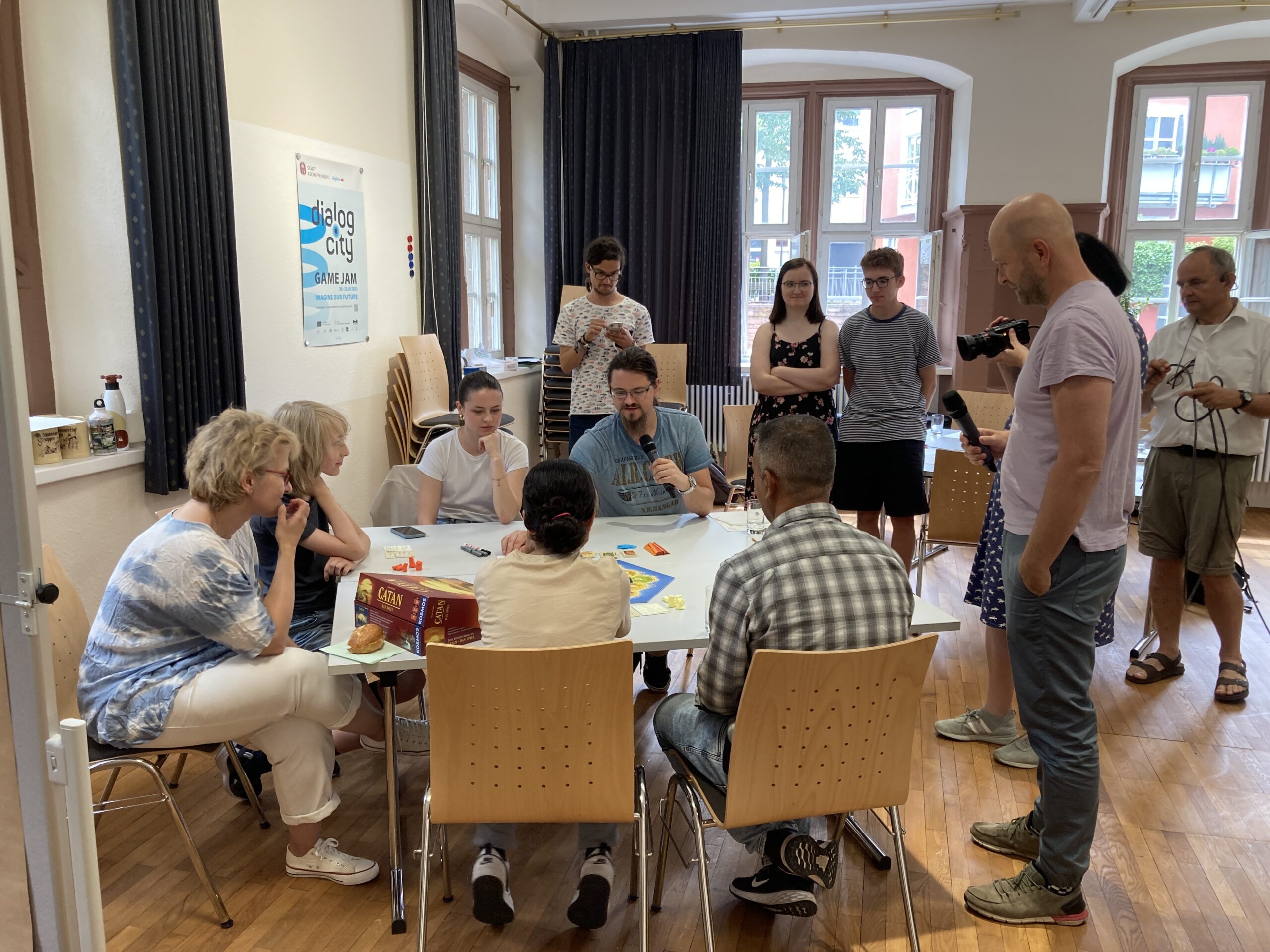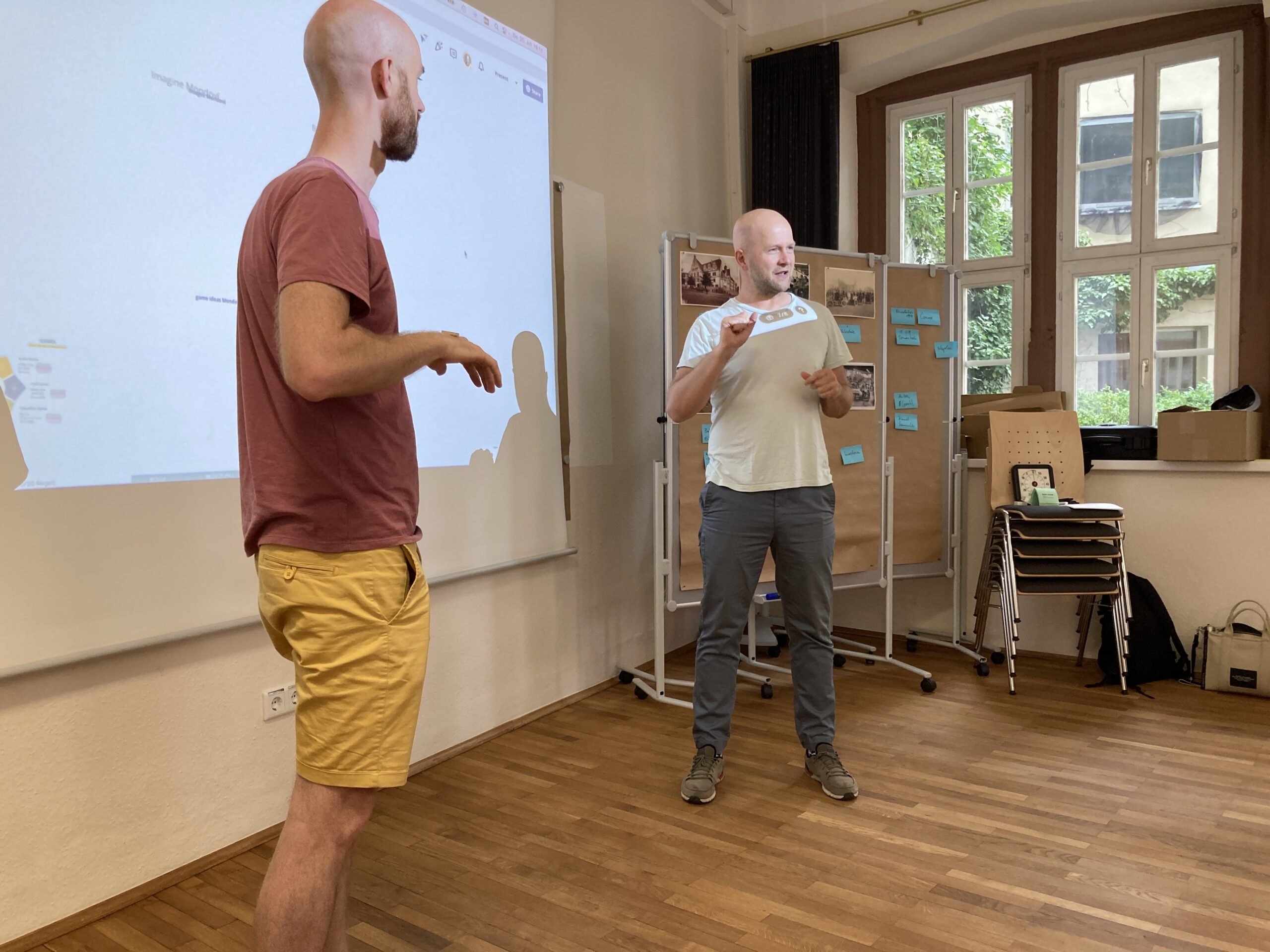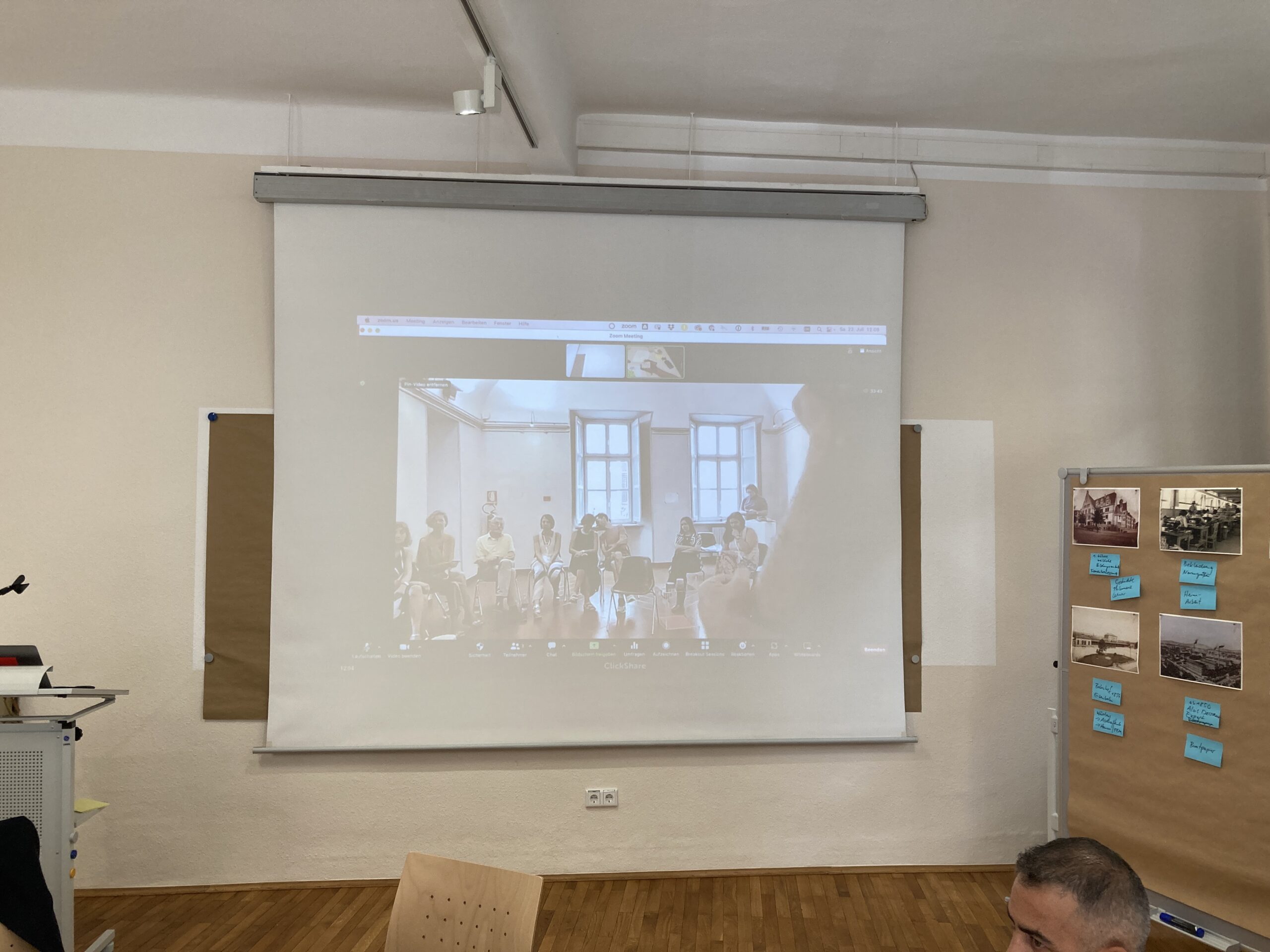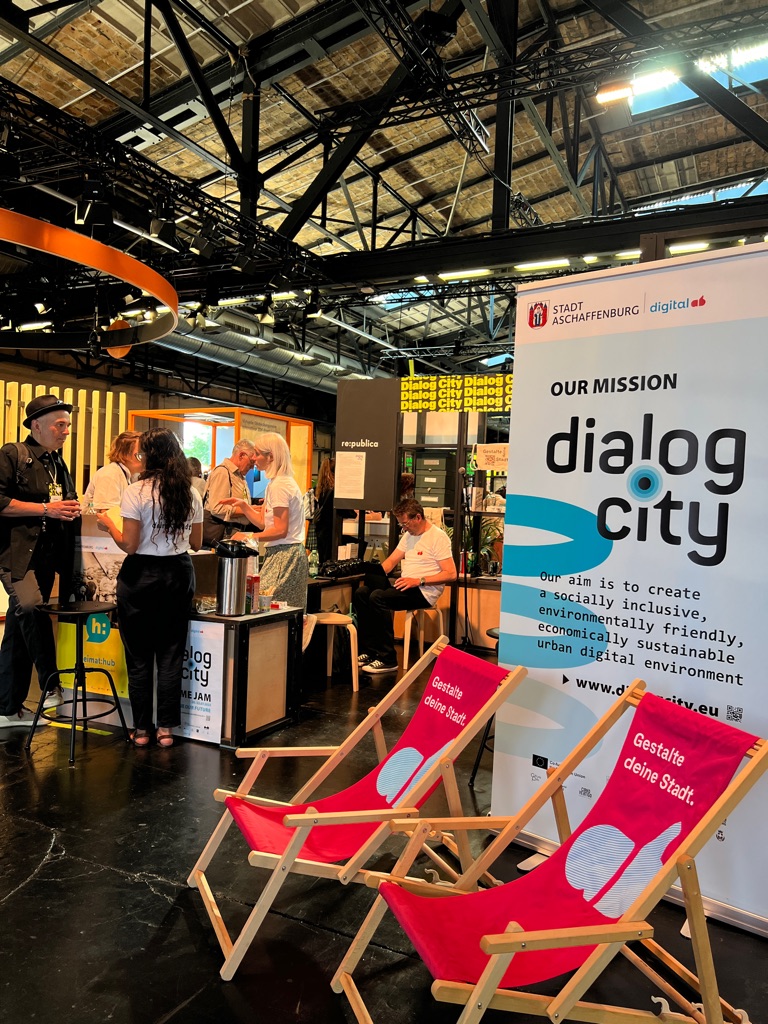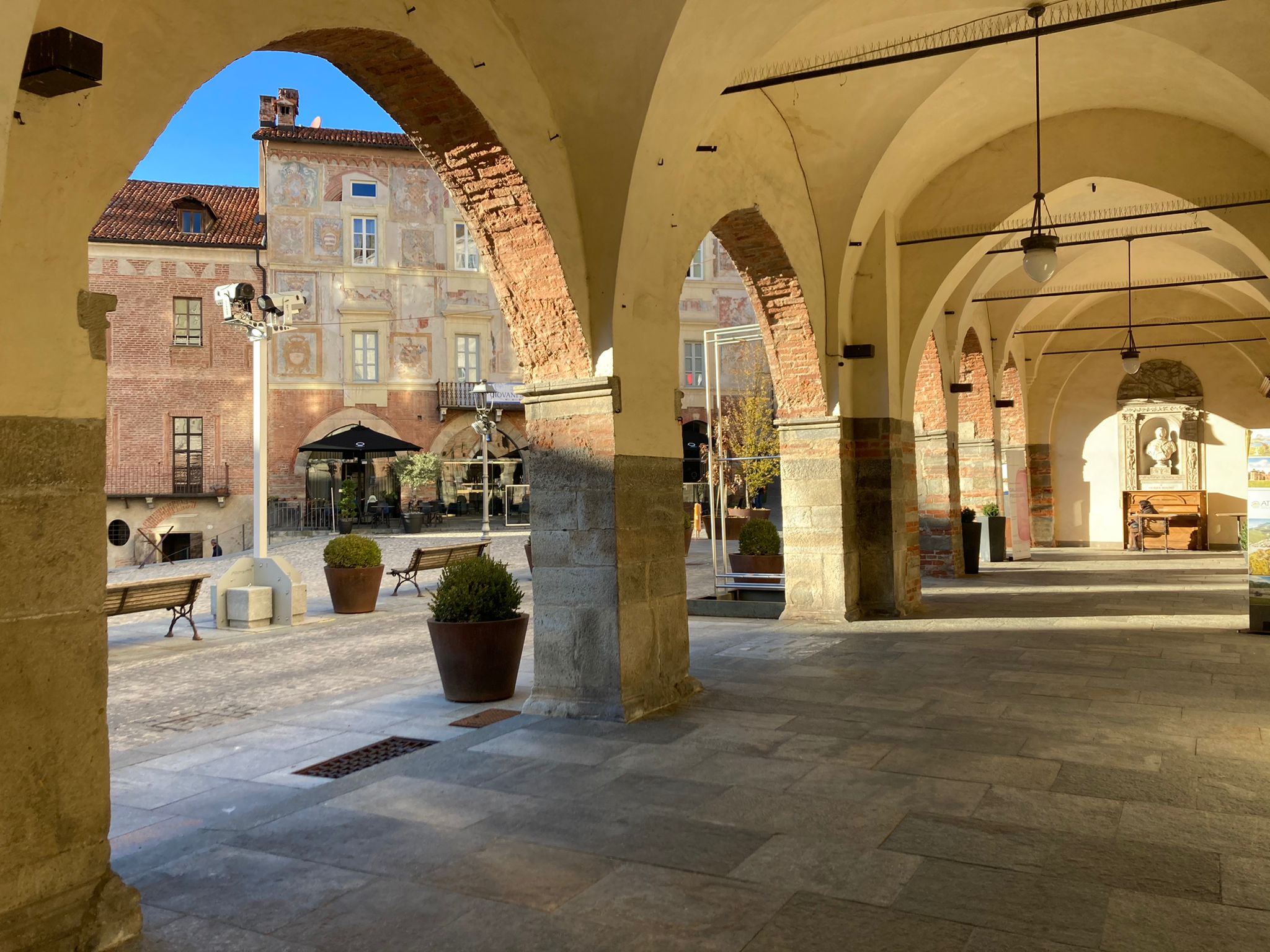Jun 06, 2024 @ 12:00 – Jun 08, 2024 @ 17:00
Over three days, we explored the topics of Personal Digital Archiving (PDA) and Futures Literacy in various event formats at the Graz Museum and the Municipal Archive Graz. On the first day of the festival, the exhibition “Beyond the Hard Drive—How Will My Data Get into the Future? ” which focuses on personal digital archiving and can still be viewed in the Municipal Archive Graz, was also opened as part of the festival opening. The subsequent lecture by Wolfram Dornik and Amelie Rakar also dealt with personal digital archiving.
Wolfram Dornik and Amelie Rakar (Photo: Sebastian Reiser).
The evening concluded with a science slam, in which seven scientists briefly and amusingly presented their research topics to the audience. The contributions ranged from digital archiving and artificial intelligence to history lessons in schools and were met with great applause from the audience.
Participants and visitors of the event (Photo: Sebastian Reiser).
On the second day of the festival, the workshop “Can We Be Active Participants in the Future that Surrounds Us? – Futures Literacy” took place. The participants dealt with the importance of futures literacy in the present. Elke Höfler’s presentation in the evening followed on from this topic. There was also a presentation on data security online and offline by Nina Hoffer (nowa) and Andreas Zingerle (mur.at) as well as the lecture “Digitally Fit: Safe and Self-determined on the Internet” by Edith Simöl (digitaleSenior:innen). The highlight of the festival was the presentation of the Citizen Archive Platform on Friday evening. The platform, which makes it easier for private individuals to donate their digital data to archives, could be tried out on site by visitors.
On Saturday, it was possible to get to know digital archiving in a playful way at the games workshop. Together we played the board game “Preservia” and answered questions about data formats, data security and personal digital archiving. At the end of the festival, the exhibition opening of the artist Lenka Holíková took place. During her 6-week artist residency in Graz, she dealt with migration in Graz. The results can be seen in the exhibition “Longings” at the Graz Museum until fall 2024.
The Artist Lenka Holíková (Photo: Sebastian Reiser).
A part of Lenka’s exhibition (Foto: Sebastian Reiser).
We would like to thank all visitors and contributors. Your participation and input led to exciting discussions that are essential for our future work and made the Hybrid Festival a unique event.
There were opportunities for exchange during the event (Photo: Sebastian Reiser).
